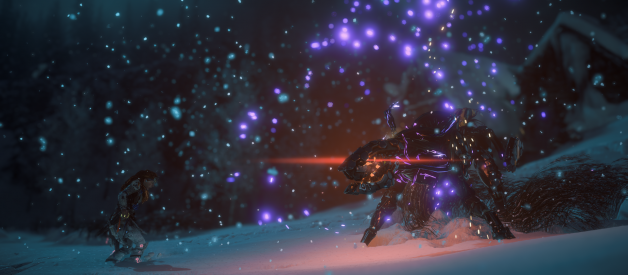Sony?s springtime releases these last two years have been massive, successful video games. Last year?s Horizon: Zero Dawn from Guerrilla Studios and this year?s God of War from Sony Santa Monica both feature player progression in the form of player levels and other ?RPG? mechanics. One game succeeds at building a believable progression, and one game fails.
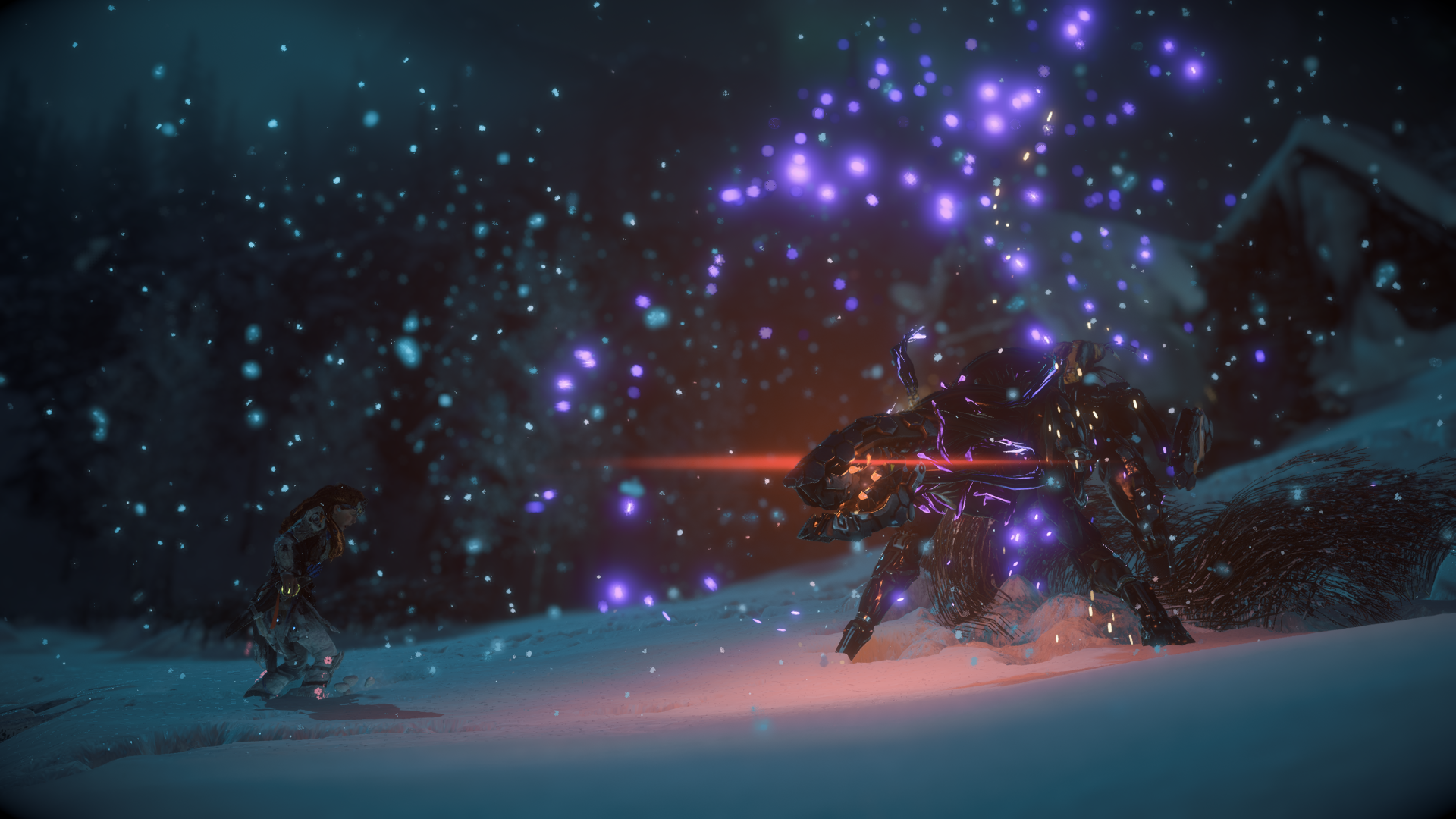 Aloy faces off against a Stalker in the Horizon: Zero Dawn ? Frozen Wilds expansion.
Aloy faces off against a Stalker in the Horizon: Zero Dawn ? Frozen Wilds expansion.
Horizon: Zero Dawn has a level cap of 60 (with something called a ?ghost level? much higher than that) after the release of The Frozen Wilds, each level you gain increases your maximum health and gives you one skill point to spend in any of the skill trees in game. Along with that, there are some skill points one can garner from completing story quests.
The games skill trees, split four-ways are Prowler, Brave, Forager and Traveler (again, based on the game post-The Frozen Wilds) leans heavily on new abilities and expanding your repertoire of combat and support skills ranging from stealth attacks to scavenging more parts and garnering more resources from the world. Some feel useless, others like they should have been available immediately (for example, the Concentration skill ? which allows players to briefly slow down time while aiming ? feels integral to ranged combat) and the way skill progression works feels arbitrary and linear. Why is the Heavy Lifter skill required to upgrade my Concentration skill, or why do you need the Expert Carver skill to access the Hoarder skill?
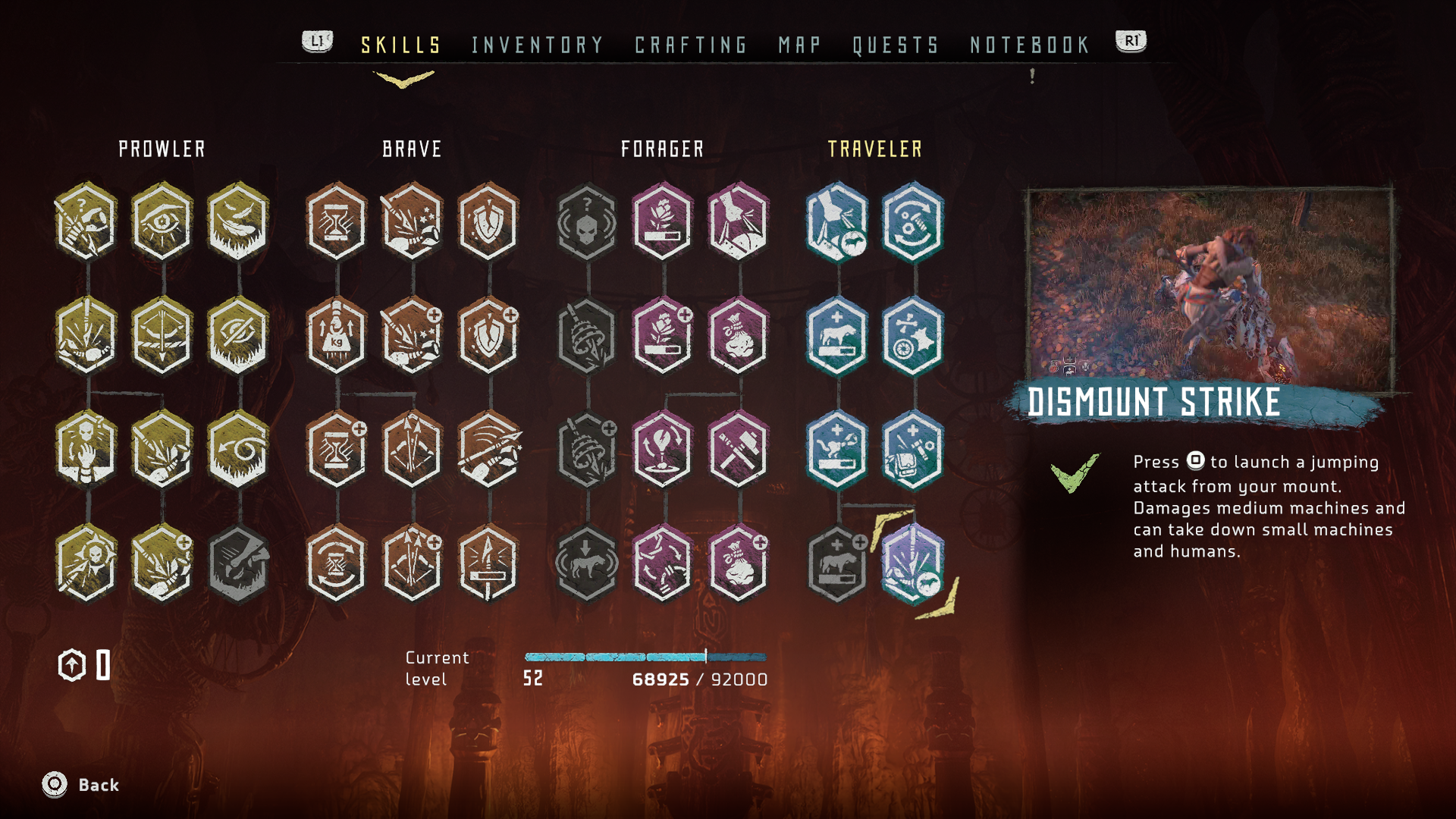 Horizon?s skill-trees in the author?s game.
Horizon?s skill-trees in the author?s game.
Along with it?s restrictive skill trees, Horizon?s level progression feels largely useless and the number representing your player strength means next to nothing besides how many skill points you?ve received and your max health. The character level is indicative of next to nothing. Player combat strength is nearly entirely based on player weaponry ? leaving the rest of the character progression feeling like a tacked-on afterthought.
A player can get the ?best? weapons incredibly early on in the game ? near the first time they enter Meridian a variety of these weapons are available. The ?Shadow? variant of each weapon is largely regarded as the ?best? due to having the most modification slots and being open to the most kinds of ammo. This leads to modifications which are classified in a simple color scheme a la Diablo, players immediately gravitate towards purple (the highest tier) modifications which are the most powerful available.
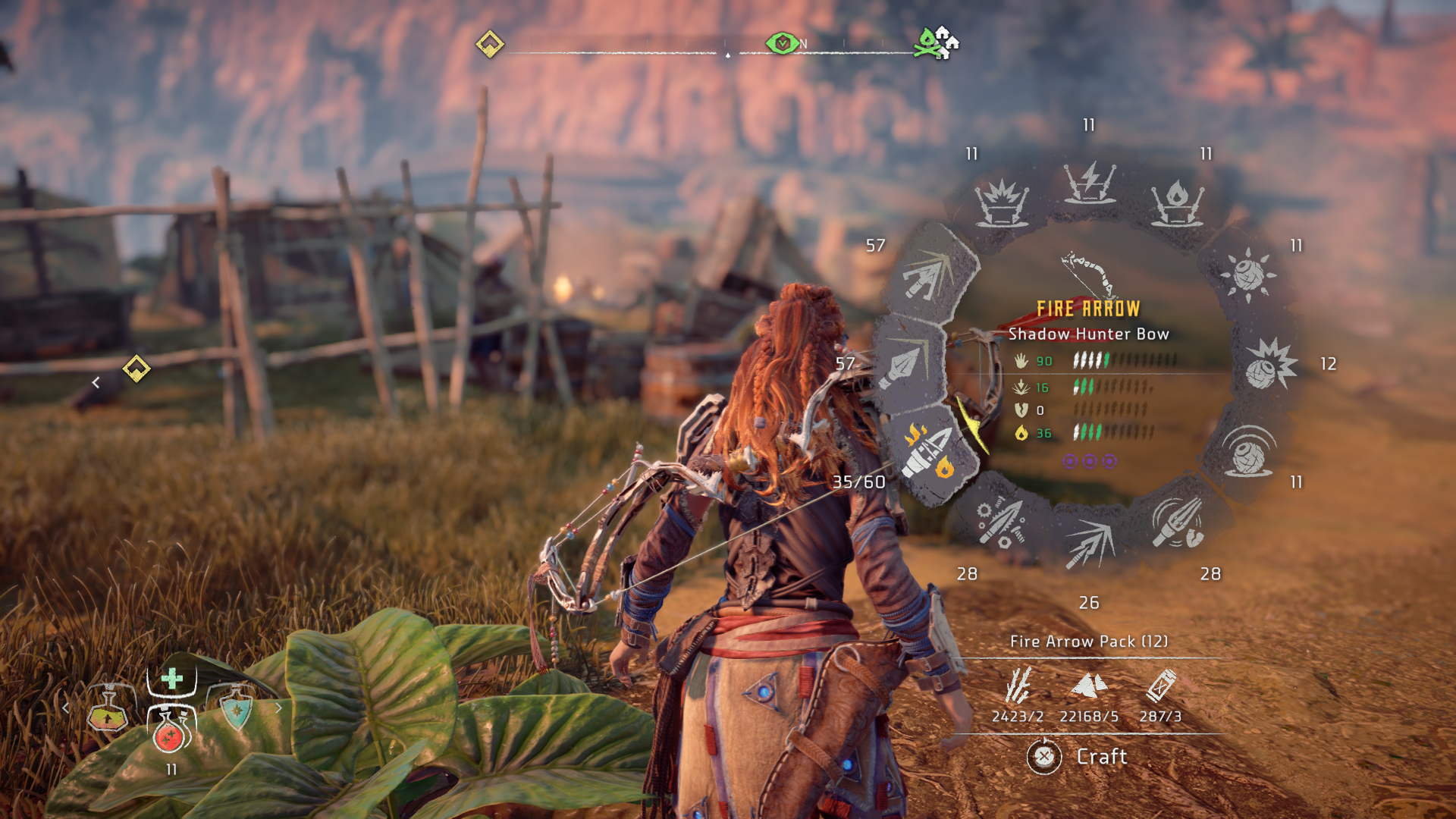 The green in each weapon?s statistics indicates increases from modifications. ?Shadow? versions of each weapon is the strongest tier, with little reason to hold onto old weapons.
The green in each weapon?s statistics indicates increases from modifications. ?Shadow? versions of each weapon is the strongest tier, with little reason to hold onto old weapons.
Character stats are all but non-existent in Horizon. Your health is the only thing that naturally changes from levelling up and all combat stats are tied directly to your weaponry. Your character?s ?level? is determined not on your character?s ?strength? but on how many quests you?ve done. Pulling the experience-points / level system from Horizon wouldn?t break anything ? there aren?t level requirements for weapons or armour, and levels are simply a suggestion on quests. The RPG-system of Horizon is a poorly integrated add-on that does nothing to improve the game or player experience.
Linear upgrade paths, and few choices for player progression besides when you get skills leaves Horizon with a tacked-on system for Aloy?s development, one that does not support much experimentation and leaves players with few real choices for progression.
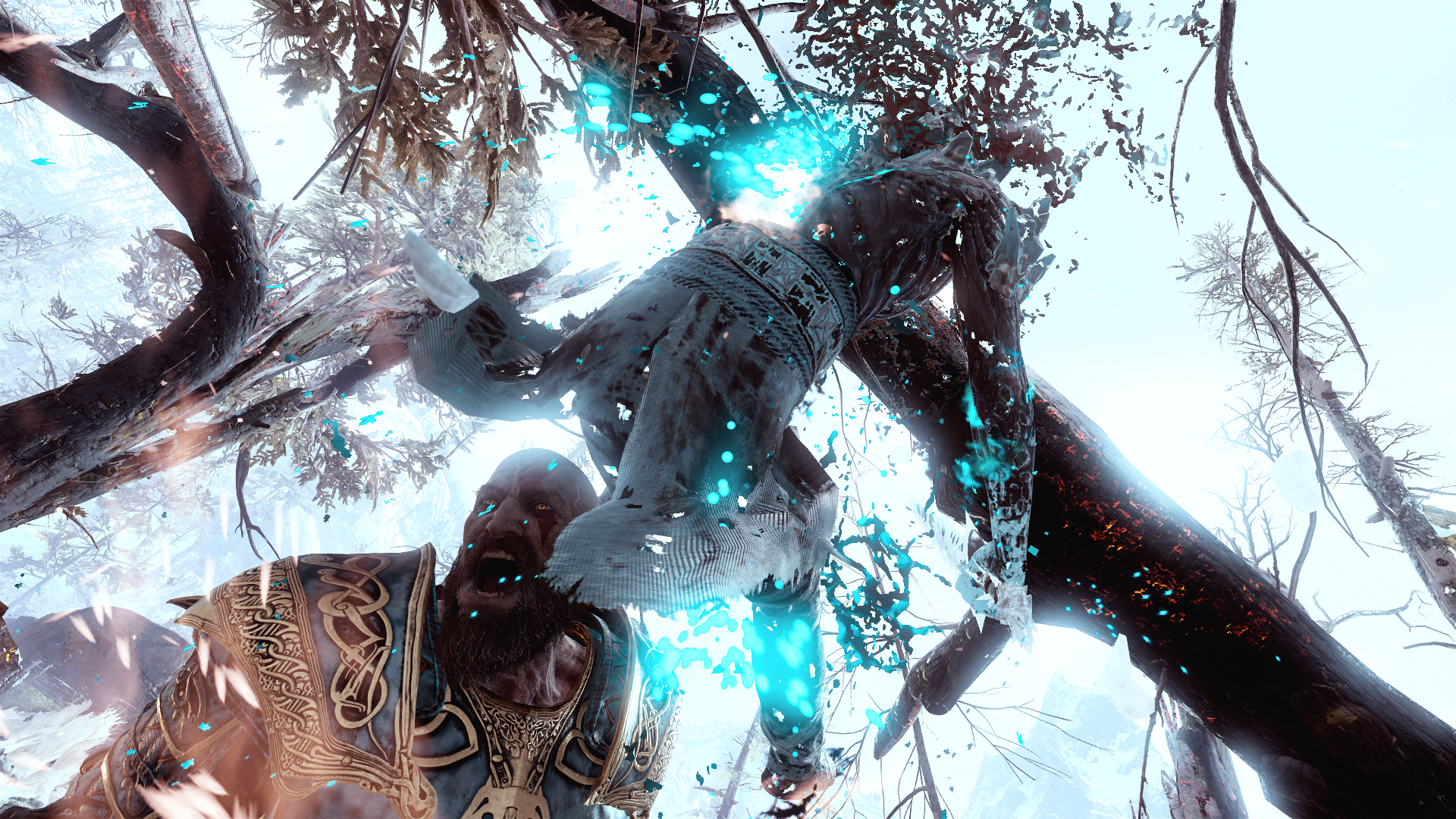 Kratos has never been a happy guy.
Kratos has never been a happy guy.
God of War?s player progression shares many of the same issues that crop up in Horizon: Zero Dawn. Players will likely end the game with the majority of the skills unlocked with the only difference being when they unlocked them. Players will gravitate immediately towards the highest-tier weapon and armour bits available (color-coded rarity / strength) ? but what God of War does correctly is tie players? experiences in the world and the equipment utilized directly to your character?s ?level? and ?strength.?
Kratos is no stranger to weapon upgrades. Each God of War game before the 2018 God of War has Kratos collecting red orbs of experience to pump into his weapons to gain new skills and increase damage.
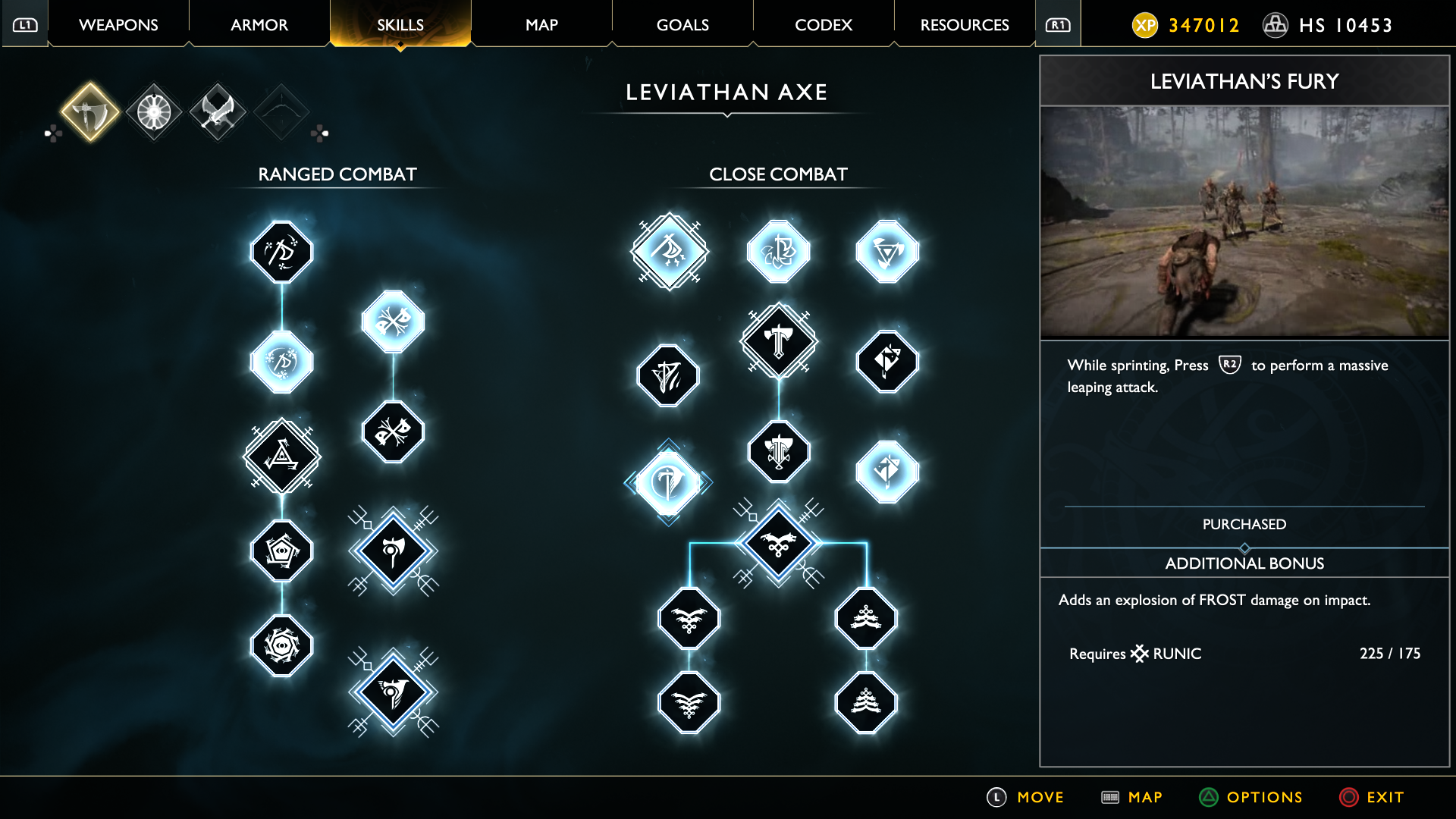 Some skills have built in bonuses upon reaching certain stat requirements ? incentivizing certain play styles.
Some skills have built in bonuses upon reaching certain stat requirements ? incentivizing certain play styles.
2018?s God of War still has experience, and still uses that experience to garner new skills and upgrades for Kratos and Atreus. Skills cost between 500 and 4000 (or so) experience points each, and experience is gained from completing quests, fighting enemies, and doing side distractions. Skills range from new combos and moves within combat to better cooldowns for Atreus or increased damage for certain moves.
The best decision Sony Santa Monica made in the character progression was to base your power level off of player stats, not the other way around. As players upgrade Kratos?s weaponry and armour he becomes more powerful. Equipping a new piece of chest armour will increase his power level from three (3) to three-and-a-half (3.5) ? Kratos? overall level is not a linear integer progression from level one (1) to level ten (10) but a fluid progression that goes against the arbitrary ?gain a certain amount of experience points to level up? systems in so many other video games.
Kratos also has a lot of statistics: Strength, Runic, Defense, Vitality, Luck and Cooldown all blend together to determine Kratos? power level. Some are weighted more heavily than others, such as Strength and Runic being deemed more important than Luck. Each has it?s own impact on gameplay, such as Vitality not just increasing Kratos? max HP but reducing the severity of staggering from enemy attacks.
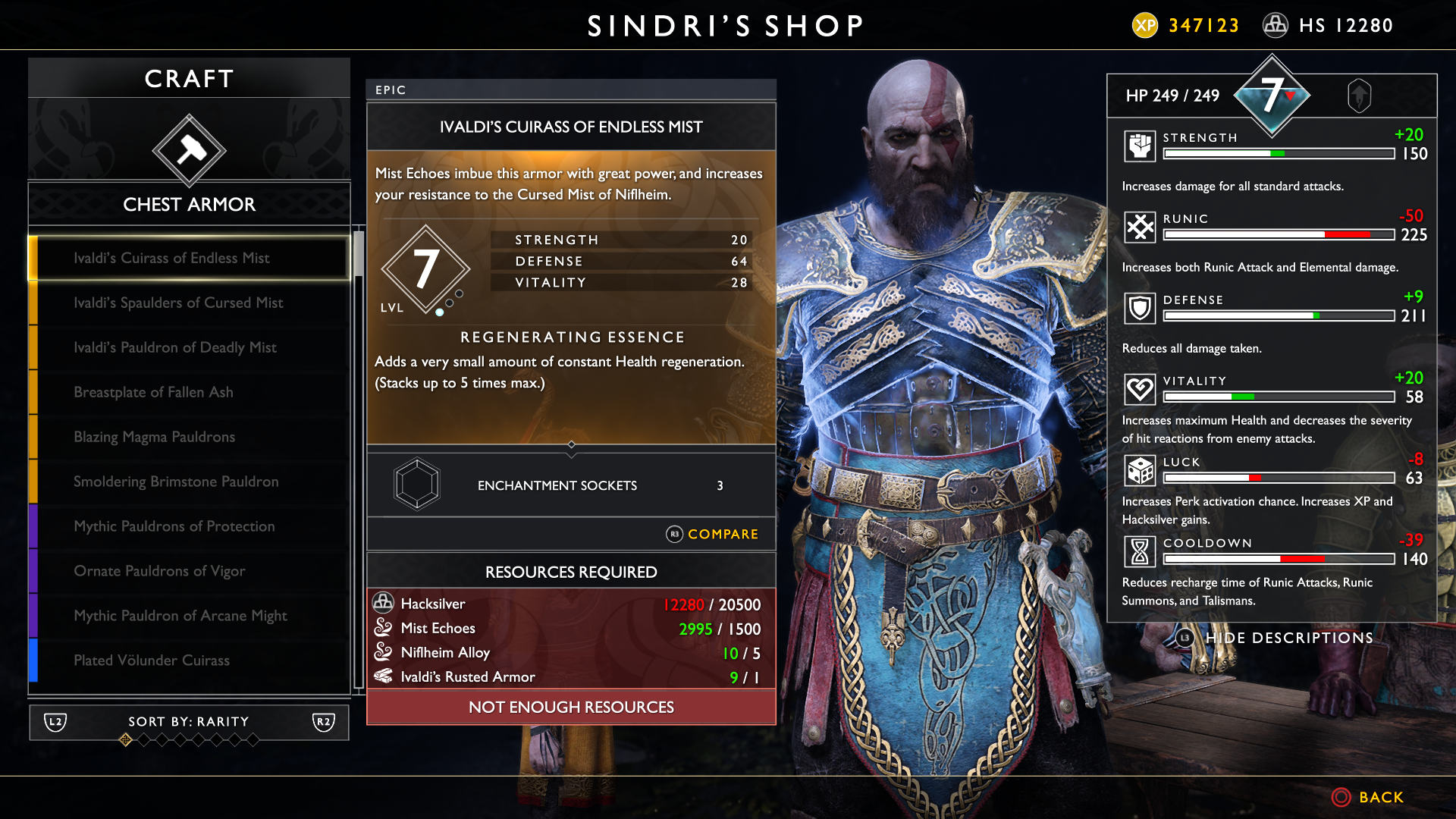 God of War?s interface is a little cluttered, but effective at modelling differences in equipment. Also end-game leaves you swimming in XP with nothing to spend it on.
God of War?s interface is a little cluttered, but effective at modelling differences in equipment. Also end-game leaves you swimming in XP with nothing to spend it on.
This fluid system based in equipment allows players to build Kratos out in a variety of different ways, even if players will end up with all the skills unlocked by end-game. I play God of War very runic-heavy, and as such my Runic and Cooldown stats are very high. I know people that are much more interested in swinging their axe around and smacking enemies around ? these people focus on Strength above all else, with a healthy heaping of Vitality so they can keep attacking through enemy blows.
God of War has players largely using the same set of weapons throughout ? Leviathan Axe, fists, Blades of Chaos and Atreus ? but the skills and equipment players choose to invest in alter how players interact with the game?s combat systems. Horizon focuses heavily on Aloy?s bows and other projectile weapons, but the games skills are disconnected from the weapons ? outside of a few melee skills and being able to shoot multiple arrows at a time.
I?m not saying God of War is a perfect system, far from it, but it allows for a wider range of approaches because its statistics and systems are there for the player to engage with ? instead of the straightforward and simplistic way Horizon: Zero Dawn handled player progression.
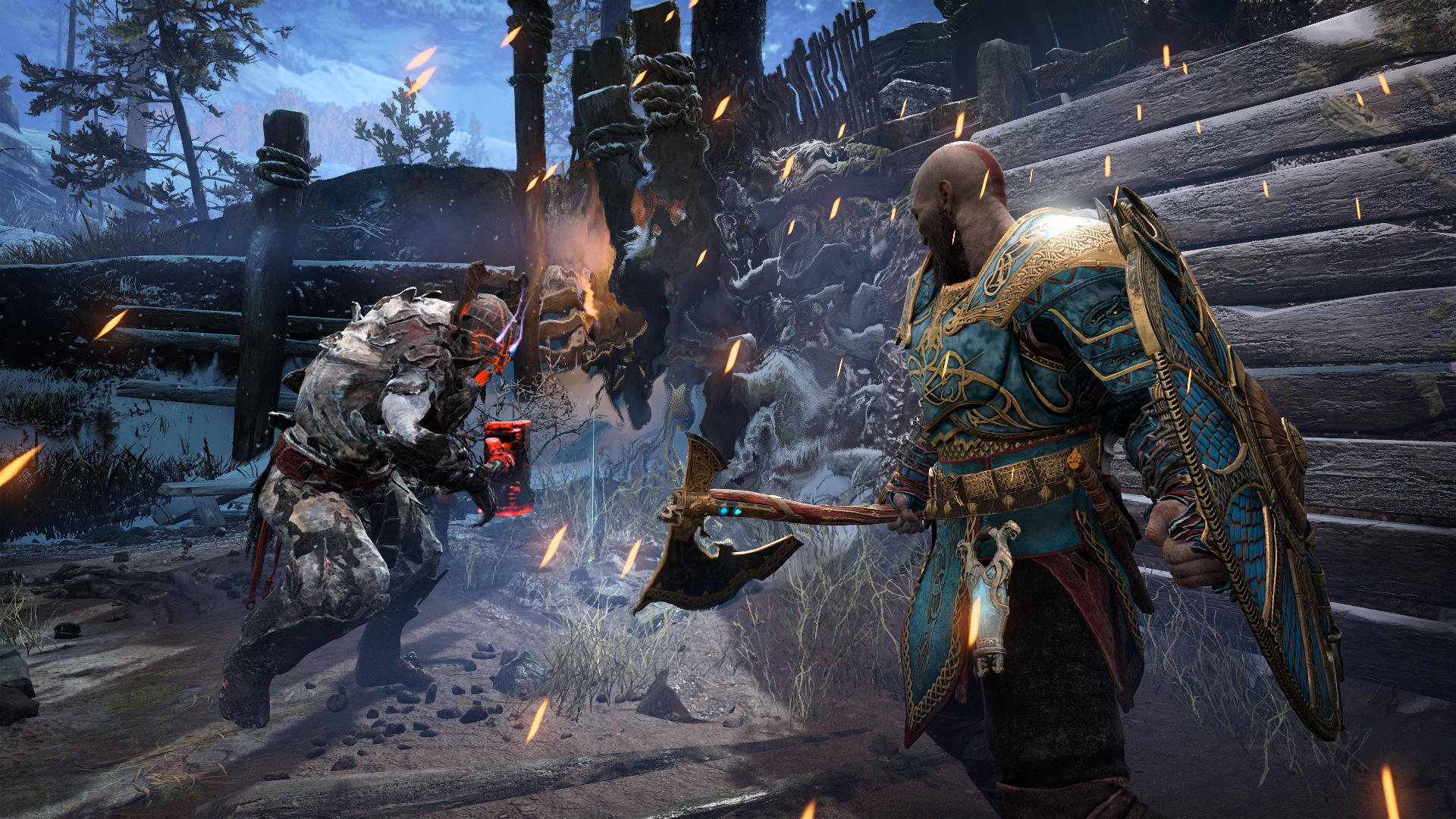 Kratos shows off his skills and cool armour to an enemy draugr.
Kratos shows off his skills and cool armour to an enemy draugr.
Horizon: Zero Dawn?s progression system felt devoid of impact, like a number ticking up simply from playing the game longer. Weaponry and armour choices was a matter of the biggest number ? not what complemented how I wanted to play the game. God of War?s fluid ?power level? made me feel like my decisions ? from the armour I decided to craft and don, to the enchantments I slotted in ? affected Kratos? strength and how I dealt with the hostile world around him.
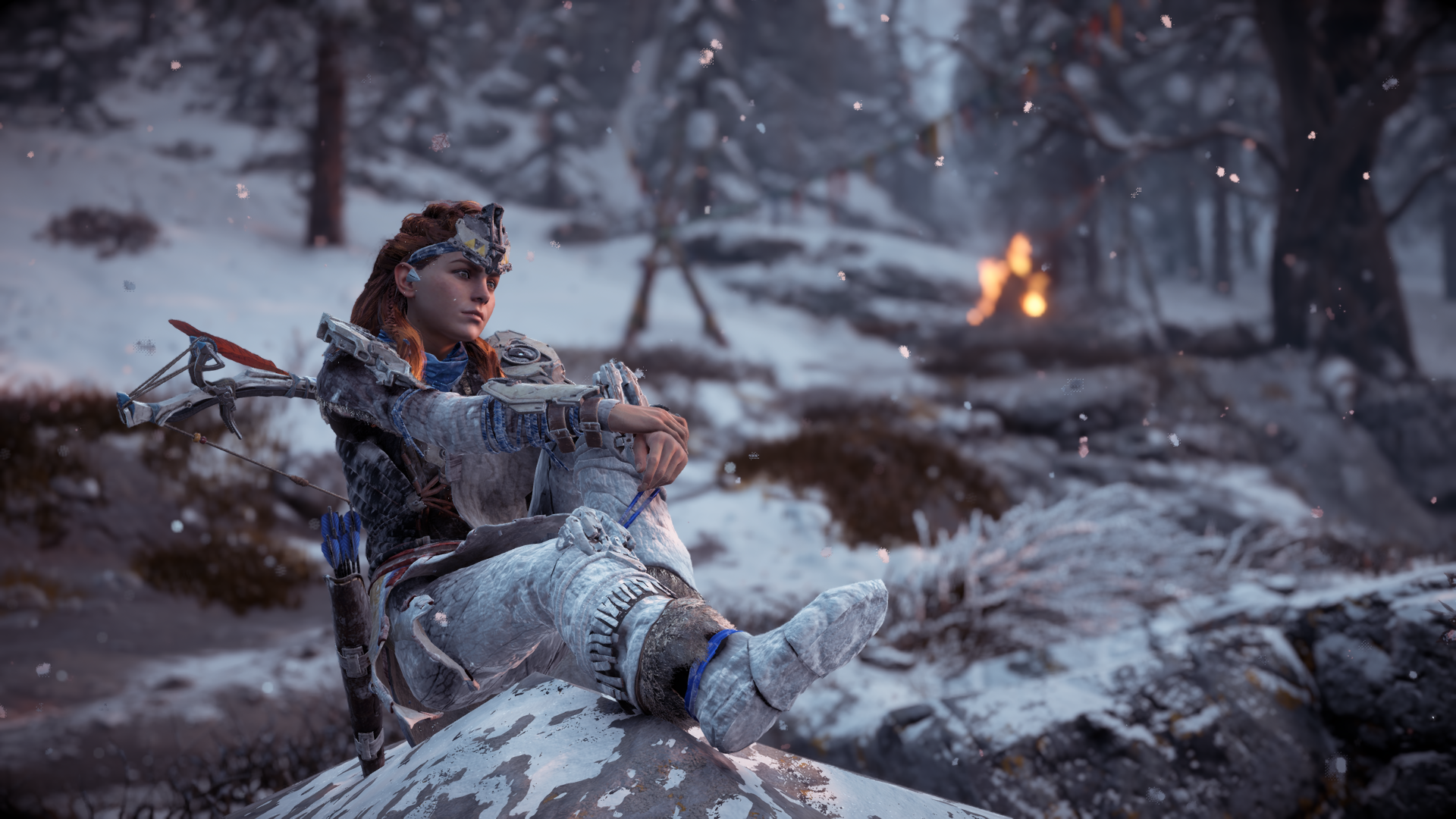 Horizon has a better photo mode.
Horizon has a better photo mode.
Both games handle their player progression in broadly similar ways ? gain experience, unlock skills, upgrade weapons and armour ? and while one game leaves each of these aspects devoid of context within the larger experience the other integrates them together in a singular, smart progression system.
